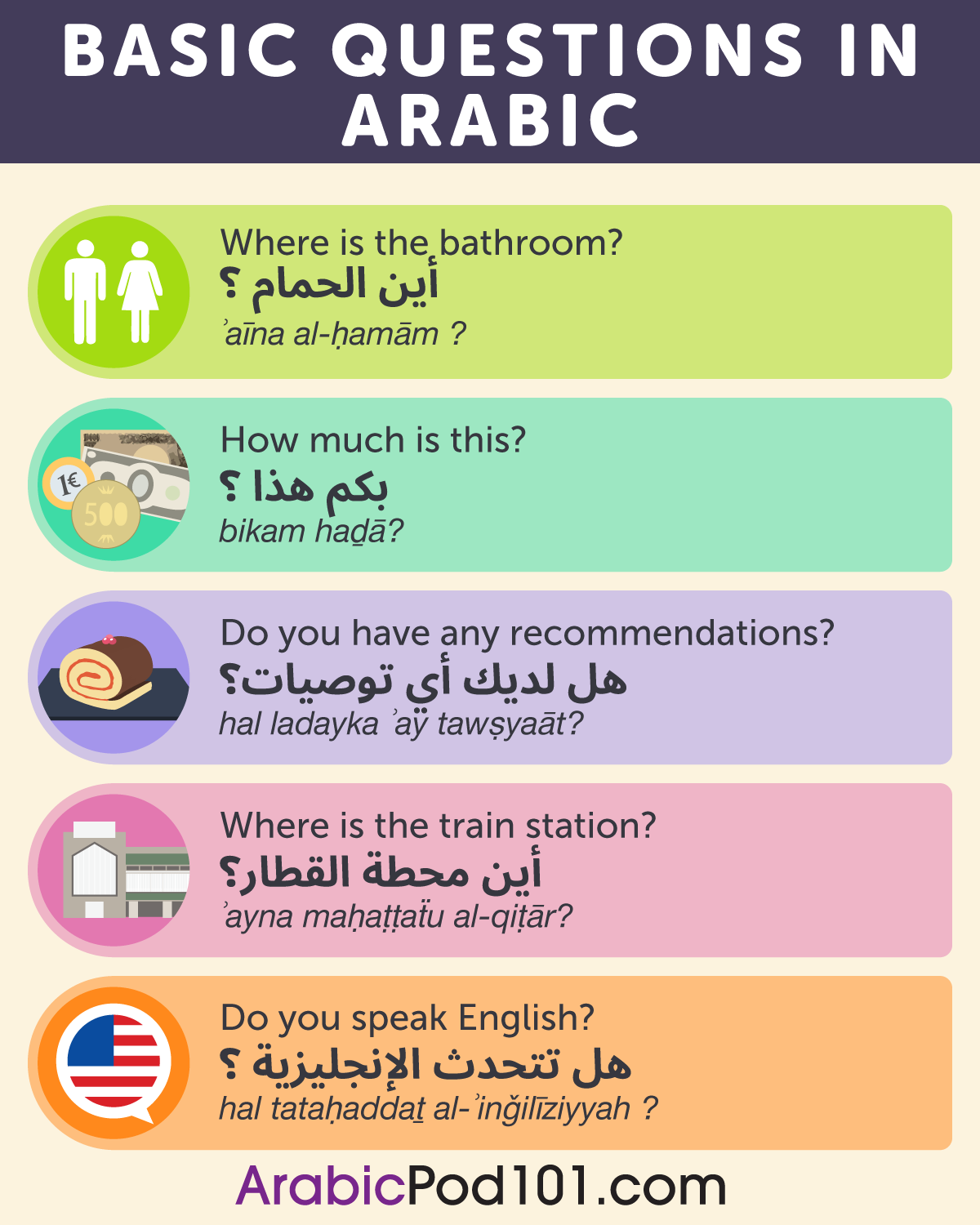Language is really about making connections.
If you know how to chat with somebody about the weather or the food you’re eating, well, good for you. That might lead to an interesting conversation.
But when you know a little bit more about your target language culture, and you can pull out the right phrase for the right situation (like how to wish a happy birthday in Arabic), you show that you’ve gone beyond just knowing a handful of words.
And when that phrase is about some major life event, something that really has an emotional effect on somebody? That’s when you make a fantastic impression.
So that’s what this article is all about: the absolute essential phrases that you need in Arabic to show somebody that you care, no matter what they’re going through.
Table of Contents
- Birthdays
- Holidays
- Weddings and Anniversaries
- Babies
- Graduation and Academic Success
- Workplace Success
- Bad News in General
- Good News in General
- Conclusion
1. Birthdays
Although birthdays can seem like a big deal at times, there’s actually not a very solid tradition of celebrating birthdays in Arab culture. It’s not necessarily related to religion either—Christian and Muslim holy texts say little about birthdays one way or another.
Some people say that the lack of “birthday culture” is because Arabs tend to be very close to their extended families. In that case, getting a gift and going to parties for your scores of cousins would end up taking a big chunk out of your time and money every year!
That said, many Arabic-speakers do celebrate their birthdays, particularly those living in Western countries. If you’re invited to such a party, you should remember to bring a gift.
But what should you say? Don’t worry: you only really need one phrase of Arabic congratulations:
-
عيد ميلاد سعيد
ʿīdu mīlādin saʿīd
Happy birthday!
It doesn’t matter whether you’re speaking to a man or a woman when you use this phrase. For something more poetic, try these two:
-
كُلُّ عام وَأَنتَ بِخَيْر
kullu ʿāmin waʾanta biḫayr
May each year be happy.
كُلُّ سَنَة وأَنتَ سالِم
kullu sanah waʾanta salim
May you be fine every year.
These are two very similar ways to basically say “and many more!”
2. Holidays
Anyone with a little bit of knowledge about the Middle East and Islam knows that Ramadan is the number-one holiday of the year. Even if you’re not a Muslim, it’s impossible not to notice as stores close early, prayer calls ring through the streets, and businesses do their best to turn it into a shopping holiday. It’s celebrated at a different time each year, lasting one lunar month and leading up to Eid al-Fitr, the day of celebration.
As with every holiday, there are a lot of things you could say. Many people write cards with poetry or other intricate well-wishings. Here, we’ll just give you the one magic Arabic congratulation you need:
-
رَمَضان مُبارَك
ramaḍān mubārak
Happy Ramadan!
However, there’s a lot more to religion in the Arab world than Islam, and therefore a lot more holidays than Ramadan. Christmas is widely celebrated, even by non-Christians, thanks to its prominence as an international Western holiday. In Egypt, it’s actually celebrated on January 7, as opposed to the December 25 you often see in other parts of the world.
-
عيد ميلاد مجيد مبارك!
ʿiīd miyilād maǧīd mubaārak!
Merry Christmas!
The last of the major Middle Eastern religions is, of course, Judaism. Although Judaism is often associated with the Hebrew language, there are large communities of Arabic-speaking Jews in many countries as well, especially Morocco. The major holiday in Judaism is Hanukkah, celebrated in November or December each year according to the Jewish calendar.
- عيد هانوكة سعيد
ʿiīdu hānūkkah saʿīd
Happy Hanukkah!
3. Weddings and Anniversaries
In Islamic culture, most people think of weddings a little differently than Westerners from a Christian or secular background might. Most wedding wishes in English are simply some variant of “Congratulations!”
But from an Islamic point of view, the wedding is the result of Allah’s guidance through life. And there are a lot of ways to say that. For that reason, these three common phrases all kind of translate to “Congratulations” and also kind of translate to “Praise Allah!”
ما شاء الله!
mā šāʾ allah!
Praise Allah!
سُبحان الله!
subḥān allah!
Thanks to Allah!
الحَمدُ لله!
al-ḥamdu lillah!
Allah is great!
There’s one more quick phrase of congratulations in Arabic that you can use for a wedding that explicitly acknowledges the event:
زَوَاج مُبارَك!
zawaǧ mubārak!
Happy wedding!
Yes, it may sound a little strange in English, but it’s a perfectly common wish in Arabic!
If you’d like to be more poetic, here’s a slightly longer phrase for weddings:
أَلف مَبروك لِلعَروس والعَريس عَلى زَوَاجِهِما السَعيد.
ʾalf mabrūk lilʿarūs ūlʿarīs ʿalā zawaǧihimā al-saʿīd.
Congratulations to the happy bride and groom.
Lastly, we’ve got one last phrase for another love-related event: the anniversary. Although it’s common and expected for people to bring gifts to a wedding, friends and family would only be expected to acknowledge “big” anniversaries like ten years, twenty-five years, and so on. Don’t worry—the couple will tell you, so you don’t have to remember by yourself!
عيدُ ميلادٍ سَعيد!
ʿīdu mīlādin saʿīd!
Happy anniversary!
4. Babies
First comes love, then comes marriage…then comes a baby in a baby carriage!
In Islam, traditionally there’s no “baby shower” before the birth. Instead, the child is welcomed into the world with a ceremony called ʿaqiqah. This generally happens on the seventh, fourteenth, or twenty-first day after birth. There’s a sacrifice of a sheep or goat, the child’s hair is cut for the first time, and a large feast is prepared afterward.
As the child is already born by the time of this ceremony, the things people say are naturally slightly different depending on whether the couple has a son or a daughter, like so:
تَهانينا بِوِلادَةِ المَوْلود الجَديد!
tahānīnā biwilādaẗi al-mawlūd al-ǧadīd!
Congratulations on the arrival of your new beautiful baby boy/girl!
In this next phrase, you’re specifically addressing the mother. This is often seen in a card addressed to her directly.
لِلأُم الجَديدَة. أَطيَبُ التَمَنِّيات لَكِ ولِابنِك/اِبنَتِك.
lilʾum al-ǧadīdah. ʾaṭyabu al-tamanniīāt laki ūliābnik/ibnatik.
To the new mother: Best wishes for you and your son/daughter.
5. Graduation and Academic Success
Although more and more people are graduating from universities each year around the world, it’s still cause for celebration. Particularly in the Arab world, where economic development has made it possible for significantly more people to attend university now than ever before.
First, here’s a cute phrase you can use for a good friend when they’ve done well on some exam or test.
ما أَذكاك!
mā ʾaḏkāk!
Look at you, clever bunny!
More formally, for instance if you’ve already graduated but someone you know is still in school, you can use this phrase of congratulations in Arabic for graduation:
أَلف مَبروك عَلى النَجاح في الاِمتِحانات.
ʾalf mabrūk ʿalā al-naǧāḥ fī al-imtiḥānāt.
Congratulations on your success with the exams.
With such good exam results, a graduation is probably coming up! You can use this phrase in speech or in a card:
أَلف مَبروك عَلى حُصولِكَ عَلى الشَهادَة الجامِعِيَّة!
ʾalf mabrūk ʿalā ḥuṣūlika ʿalā al-šahādah al-ǧāmiʿiyyah!
Congratulations and happy graduation!
6. Workplace Success
A foreigner in the Arab business world is already going to be expected to work hard to not only excel at their job, but also to fit in culturally.
A lot of businesses in the Middle East work at breakneck speed already, and so if you know how to compliment your coworkers correctly, you’ll make great strides in assimilating into the company culture.
حَظّاً سَعيداً في مَنصِبِك الجَديد!
ḥaẓẓan saʿīdan fī manṣibik al-ǧadīd!
Best of luck in your new position!
Outside of moving up in the same company, people you know outside of work are naturally going to go on their own career paths. Here’s a phrase of congratulations in Arabic for success you can say when someone really nails the interview and lands a nice job:
تَهانينا عَلى الوَظيفَة الجَديدَة!
tahānīnā ʿalā al-waẓīfah al-ǧadīdah!
Congratulations on your new job!
Here’s a slightly more formal way to say the same thing, used when you might not know the person well. In that case, you’ll want to add on the actual name of the company at the end.
نَتَمَنّى لَكَ الحَظ الجَيِّد في وَظيفَتِك الجَديدَة عِندَ…
natamannā laka al-ḥaẓ al-ǧayyid fī waẓīfatik al-ǧadīdah ʿinda…
Best of luck at your new job at…
7. Bad News in General
Time for a brief downer section. If someone you know has received bad news, then you can reach out and comfort them with some heartfelt words. Of course, it will come off as a bit superficial or rude if you use stock phrases—try your best to modify these phrases to fit the actual situation.
Particularly when it comes to events related to death, religious people often use passages from holy texts. There are a number of resources online for Quranic quotes about life and death, and if you use them appropriately, the effort will be strongly appreciated in this trying time.
With that said, in this section we’ll stick to simpler Arabic condolences messages instead of direct scripture quotations.
Funerals
When somebody you know has lost someone close to them, a sympathetic card, letter, or even a phone call is the perfect gesture. Use these Arabic condolences to show your kind feelings.
تَقَبَّّلوا مِنّا خالِص التَعازي لِوَفاةِ المَرحوم
taqabbalū minnā ḫaliṣ al-taʿāzī liwafāẗi al-marḥūm
I am very sorry to hear of your loss.
قَلُبنا مَعَكُم ومَع عائِلَتِكُم بِما أَلَمَّ بِكُم مِن مِحنَة في هَذا الوَقت الصَعب.
qalubnā maʿakum ūmaʿ ʿāʾilatikum bimā ʾalamma bikum min miḥnah fī haḏā al-waqt al-ṣaʿb.
Our thoughts are with you and your family during this difficult time.
نُقَدِّم إلَيْكُم أَخلَص عِبارات التَعازي
nuqaddim ʾilaykum ʾaḫlaṣ ʿibārāt al-taʿāzī
Please know that we would like to offer our deepest sympathy.
Poor Health
Naturally, in Arabic as well as in English, people would much rather send “get-well” messages instead of discussing the particulars of the illness. The standard messages for this situation sound a lot like their English equivalents.
These condolences in Arabic are what you’d normally write on cards to the sick person’s home or hospital bed.
تَمَنِّيَاتي لَك بِالشِفاء العاجِل
tamanniyatī lak bilšifāʾ al-ʿāǧil
Get well soon.
If your coworker is suffering from an illness and you’d like to send a message of support from the whole office, you can phrase it this way:
نَرجو لَك الشِفاء العاجِل. الجَميع هُنا يُفَكِّرُ فيك.
narǧū lak al-šifāʾ al-ʿāǧil. al-ǧamīʿ hunā yufakkiru fīk.
Get well soon. Everyone here is thinking of you.
In a more personal way, you can make a phone call or send a text, and say this phrase:
.أَتَمَنّى لَكَ الشِفاء العاجِل
ʾatamannā laka al-šifāʾ al-ʿāǧil.
I hope you make a speedy recovery.
8. Good News in General
And in order to end on a happy note, let’s look at just a few more phrases you can use for any kind of catch-all good stuff.
First, remember those phrases from the wedding section about praising Allah? Those are excellent for when something good happens, no matter what it is.
To be honest, these may seem super-religious to some people, but they’ve entered the Arabic language as set phrases and are used by everyone. I remember one time it took me a long time to order at a restaurant, and the impatient waiter said al-hamdullilah under his breath once I finally made my choice!
We’ve also seen the word mubarak a couple times. A related word is مبروك (mabruuk), or “blessed”, which comes from the root بَرَكة (barakah), or “blessing.”
So when something’s gone very well for someone, and you want the perfect Arabic phrase for congratulations, you can simply wish them mabruuk! To emphasize it, you can say:
ألف مَبْرُوك
alf mabrūk
A thousand blessings!
And if a thousand blessings aren’t enough to make them happy, nothing will.
9. Conclusion
Although this article may seem comprehensive, the only way to really get a deep understanding of what to say and how to say it for different life events in Arabic is to get more experience.
Watch Arabic movies and read Arabic books—and check out the Arabic material here on ArabicPod101.com. Each episode comes with can’t-miss culture notes, so you’ll never be lost for words again.
Before you go, let us know in the comments what you learned today. Are there any life events or messages that you still want to learn? We look forward to hearing from you!


















